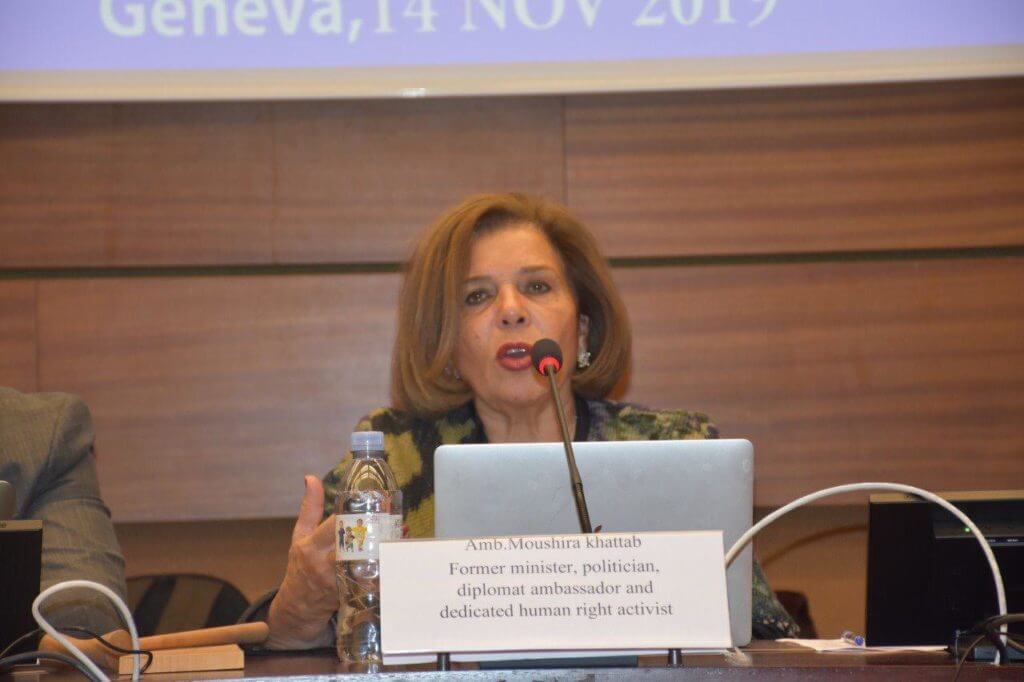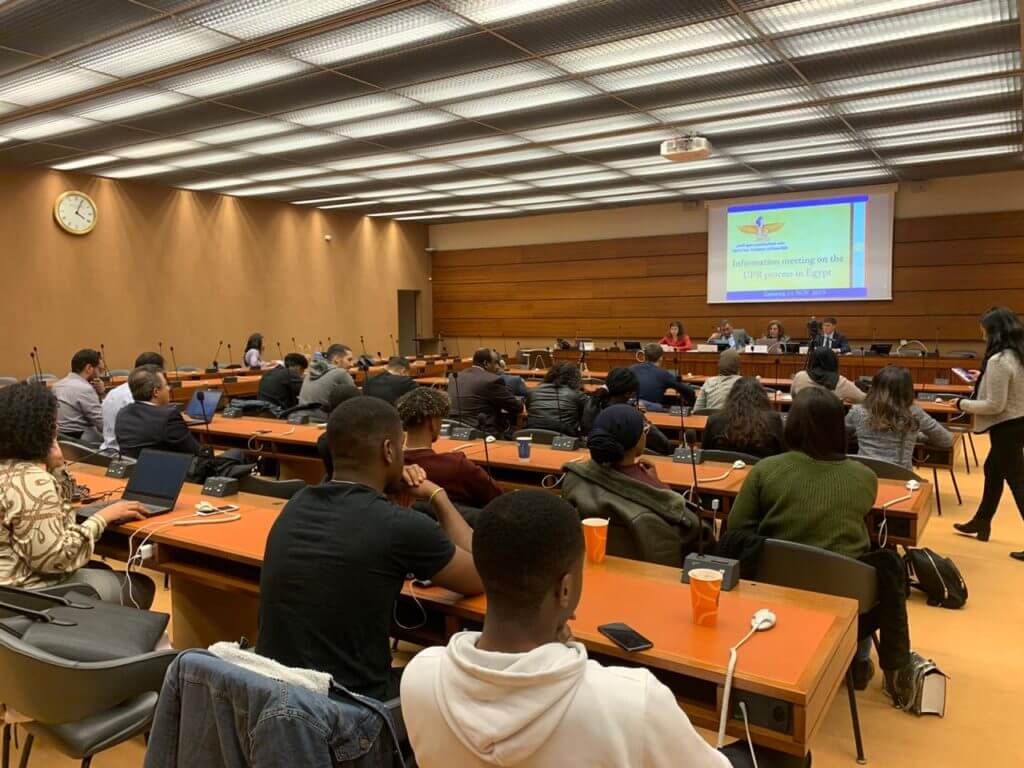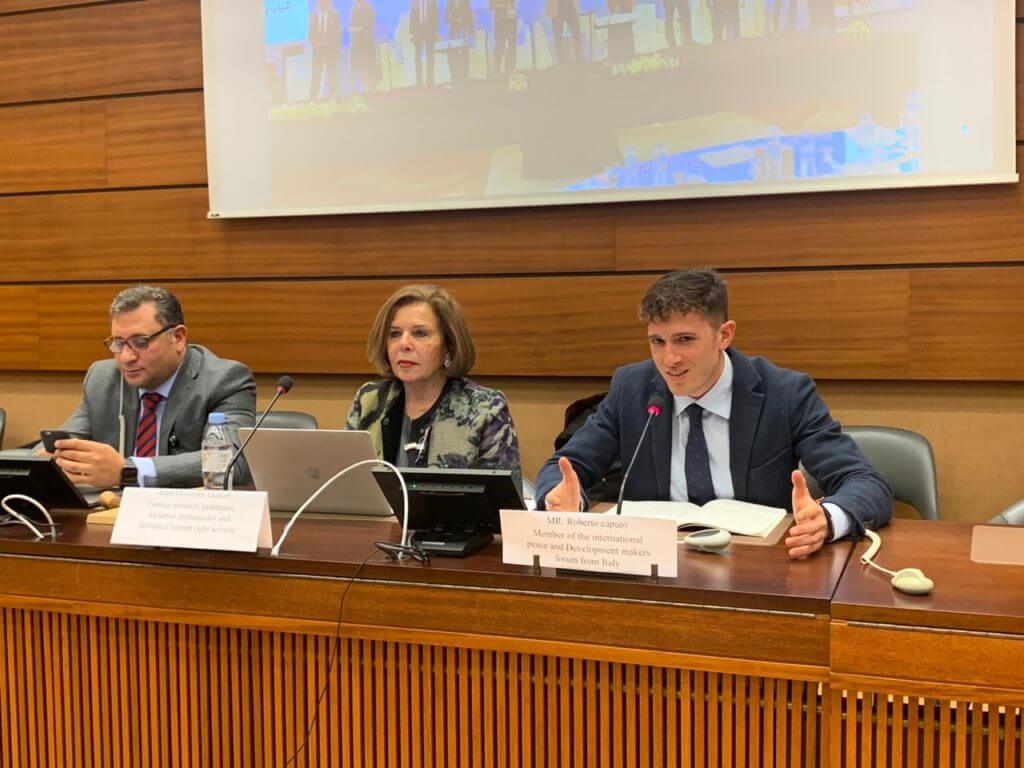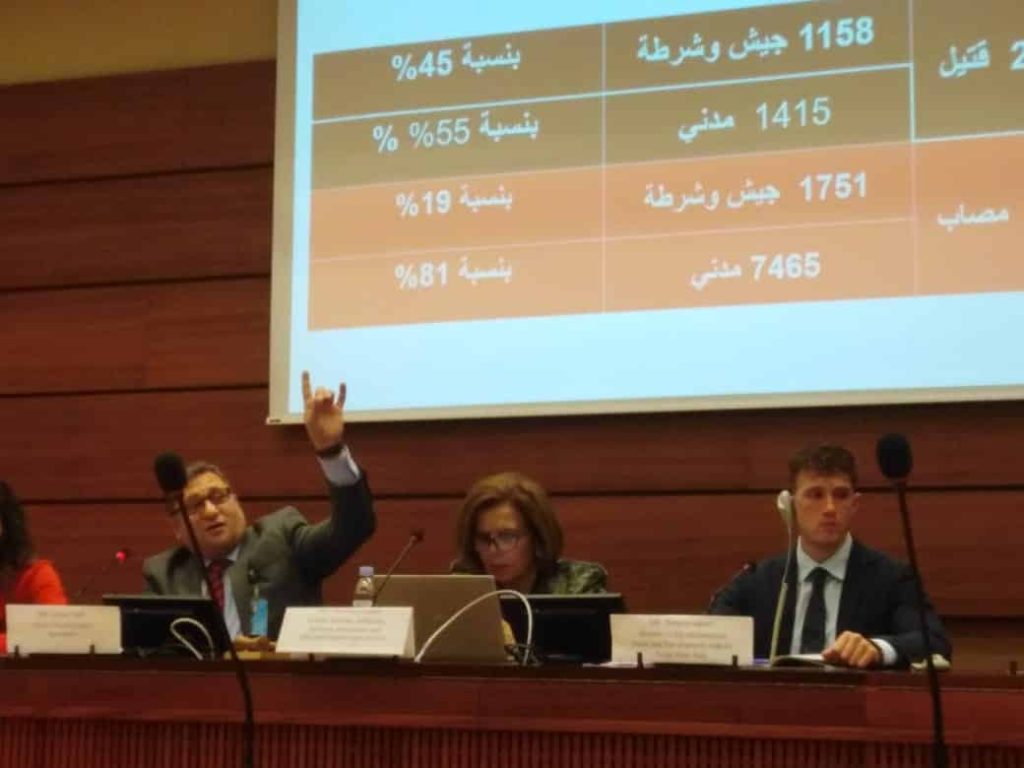On the sidelines of the 34th UPR session
Moshira Khattab: The strategy will be presented for the national dialogue
Aqeel: Terrorism is the biggest challenge facing the state
Maat Foundation for Peace, Development and Human Rights launched a national strategy to promote human rights in Egypt, during a symposium held today, Thursday, November 14, 2019, on the sidelines of the 34th session of the Universal Periodic Review, at the United Nations Human Rights Council in Geneva.
The seminar was attended by Ambassador Mushaira Khattab, former Minister of Family and Population, Ayman Aqil, Chairman of the Maat Foundation, and Italian Roberto Caputo, a member of the Forum for Peace and Development Makers, and the seminar was moderated by Lydia Kakoru from Greece.
During the symposium, Moshira Khattab said that this strategy recognizes the pivotal role of civil society and other partners in helping the state to guarantee the human rights of its citizens. The strategy aims to create an environment supportive of human rights as a means to achieve peace and security, and as a necessity to achieve sustainable development.
Khattab added that the strategy aims to implement the recommendations that emerged from the universal periodic review, and to implement the Egyptian constitution. It defines the vision and the policies that must be approved to implement the vision and to establish a solid national infrastructure that guarantees the protection, promotion and enforcement of human rights. Building on the details of this strategy will be completed in a participatory manner in which the opinions of all partners will be benefited.
For his part, Ayman Aqil, President of Maat Foundation, affirmed that the role of civil society in the strategy to improve human rights, which Maat launched today, depends on following up and assisting the government in implementing pledges that it will voluntarily accept in light of the universal periodic review process.
Aqeel added that the civil society must start work from the day after the report was approved, and this is what the Maat Foundation did, as it collected yesterday, November 13, after submitting the recommendations to Egypt, to compile, classify and distribute them into rights to start following up on the government and assisting it to implement these recommendations. The head of Maat Foundation also indicated that terrorism is the biggest challenge facing the Egyptian government as it faces most countries of the world.
During the symposium, Aqeel presented statistics of terrorist operations from 2011 to 2019 and stressed that terrorism violates the Egyptian citizen's right to life, and Aqeel sent a message to the international community, the High Commissioner for Human Rights, international missions and donors that our role is to help governments fulfill their obligations and improve the human rights situation. Through sharing and cooperation, not just criticism.
Roberto Caputo also stressed the need to build a partnership between the state and civil society in order to implement recommendations and pledges in particular, and to achieve sustainable development goals in general, especially since the main goal of the work of civil society organizations is to work to improve human rights and achieve development in society, and that this did not happen without A partnership between the state and civil society.

















